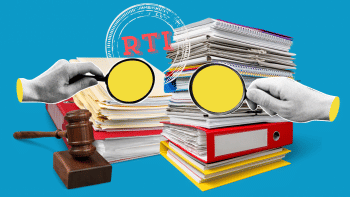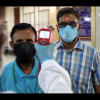The fight for social accountability in Bangladesh

Social accountability seeks to enhance government services and ensure effective response to public needs. At the heart of this lies the belief that every citizen's voice matters. We envision a society where public services are effective, equitable, and transparent. Sacrificed lives of students demand government accountability, therefore, effectiveness of accountability models in Bangladesh should be scrutinised. The anti-discrimination student movement of 2024 personifies this. Emerging from profound frustration with authoritarian rule, the students escalated their efforts to call for a regime change when accountability remained elusive. Their hope was that no more lives would need to be lost in the quest for justice.
Social accountability extends beyond mere government oversight; absence of this breeds corruption, inefficiency, and inequality, eroding public trust and undermining the democratic processes. A system founded on accountability cultivates a culture of integrity and trust, essential for the legitimacy of any government. The experience of the students in the 2024 movement serves as a stark reminder that when government evades accountability, the populace suffers, resources are wasted, public services falter, and disenchantment proliferates. Without social accountability, public institutions also remain unchecked, allowing wasteful expenditures and unaddressed wants to fester.
Bangladesh has made notable strides in promoting social accountability through initiatives such as community monitoring, public hearings, social audits, and citizen report cards. These efforts empower ordinary citizens by providing platforms to raise concerns, seek solutions, and engage in decision-making processes. Successes such as Community Score Cards (CSCs) in health and education and the Right to Information (RTI) Act—allowing citizens to request information from public authorities—have been achieved. However, significant challenges still remain.
Despite initial promise, many social accountability initiatives remain underutilised. A key issue is the lack of public awareness; many citizens are unaware of their rights or the mechanisms at their disposal. Additionally, resistance from government officials and service providers, who may perceive these measures as inconvenient, complicate the landscape. Systemic issues in Bangladesh further exacerbate these challenges, weak institutional frameworks, inadequate funding, and complex power dynamics prevent social accountability models from realising their full potential. Unless these obstacles are addressed, the country's progress remains stunted.
It is evident that Bangladesh requires a more effective model for social accountability. Technology, education, and community engagement must take centre stage. The Institute of Informatics and Development (IID) presents an innovative example with the Citizen-Led Social Audit model. This approach enables citizens to assess public services and navigate a clear accountability pathway. By engaging stakeholders through town halls, sharing audit results, and continuously monitoring progress, this model offers a sustainable way forward.
The future of social accountability in Bangladesh hinges on fostering strong partnerships between government, civil society, and the private sector. Key factors for success include clear communication, mutual trust, and well-defined roles. Each partner must understand their responsibilities and receive the necessary training and resources to contribute effectively. By cultivating these partnerships, we can ensure that accountability efforts are not only implemented but also sustained.
We can no longer afford to wait for crises to catalyse change. A comprehensive new model of social accountability is required. Leveraging technology, education, and partnerships can pave the way for a more transparent and responsive governance system. The future of Bangladesh depends on this transformation. Social accountability is more than a tool, it is essential for democratic governance and sustainable development. While Bangladesh has made commendable progress, much work remains. The anti-discrimination student movement of 2024 serves as a powerful reminder that citizens will demand justice, often at great personal cost.
Muhammad Tanbirul Islam is a research associate at IID and the editor of the Policy Pulse.
Views expressed in this article are the author's own.
Follow The Daily Star Opinion on Facebook for the latest opinions, commentaries and analyses by experts and professionals. To contribute your article or letter to The Daily Star Opinion, see our guidelines for submission.

 For all latest news, follow The Daily Star's Google News channel.
For all latest news, follow The Daily Star's Google News channel. 










Comments